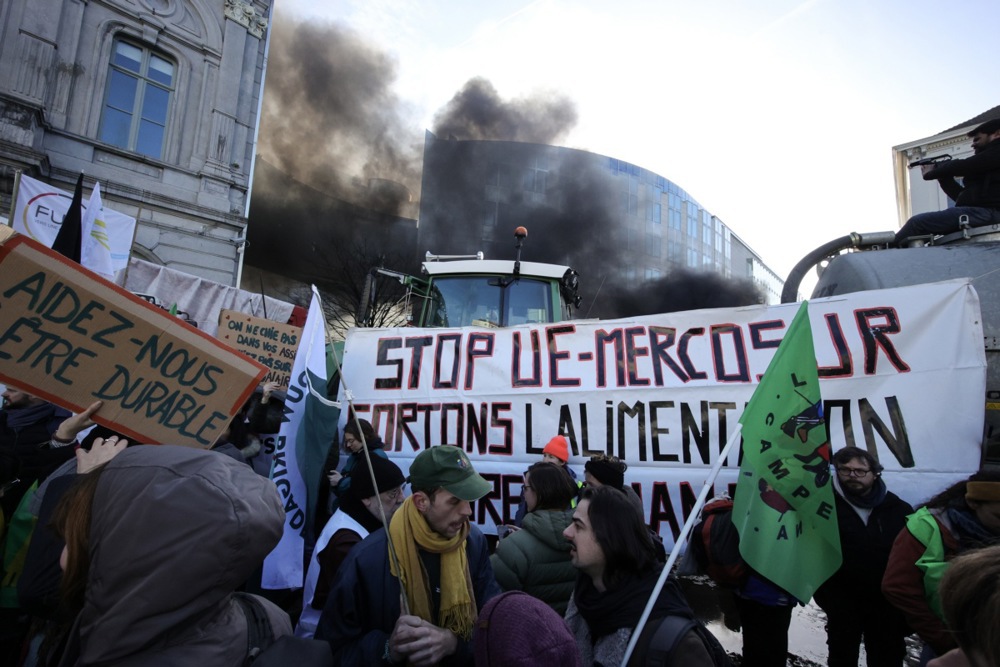Committee of the Regions, Brussels – Grand Est, France
In a significant display of solidarity and support for Ukraine, the French region of Grand Est has taken a pioneering step by offering its representative offices in Brussels to Ukrainian administrations.
This move, hailed as “logical and natural” by officials, marks a crucial development in strengthening ties between the European Union and Ukraine, as the eastern nation and its regions resists Russian aggression.
Grand Est has become the first EU region to extend such an invitation to Ukrainian counterparts.[?]
The region of Kharkiv and the All-Ukrainian Association of the District and Regional Councils (UADRC) will now have access to Grand Est’s offices in Brussels, providing them with a vital platform to engage with EU institutions for emergency aid and long-term support for recovery and reconstruction efforts.
Christian Debeve, who heads Région Grand Est’s commission on cross-border issues, emphasized the significance of this collaboration.
“It is logical and natural to open this cooperation and work closely with our Ukrainian friends,” she said.
Debeve’s sentiments reflect the region’s commitment to fostering a robust partnership with Ukraine, exemplifying the spirit of solidarity that underpins European values.
Tetyana Yehorova-Lutsenko, head of the Kharkiv Regional Council and of the UADRC, lauded the initiative, highlighting its potential to enhance European integration for Ukrainian regions.
“This is the first office of the All-Ukrainian Association of District and Regional Councils outside Ukraine. It opens up new opportunities for European integration for the regions of Ukraine,” she remarked.
The decision by Grand Est to facilitate Ukrainian representation in Brussels has garnered praise from various quarters.
Serhiy Tereshko, deputy head of Ukraine’s mission to the EU, commended the initiative, emphasizing the importance of support at the grassroots level.
“Regions, communities are much closer to people. They are kind of roots of this democratic support,” remarked Tereshko, underscoring the pivotal role of regional cooperation in fostering democratic values.
German MEP Michael Gahler, a key figure in shaping the EU’s Ukrainian support package, reiterated the European Parliament’s commitment to involving regions and cities in the implementation of the EU-Ukraine plan.
“We are institutionally for ringfencing a certain percentage of that money that should go to the subnational entities,” stated Gahler, highlighting the parliament’s focus on empowering local governance structures.
Patrick Molinoz, vice-president of the neighbouring region of Bourgogne-Franche-Comté, lauded Grand Est’s decision as a significant step towards EU integration for Ukraine.
“Opening a representation here in Brussels is a way for your regions, for your association, to get used to try to learn the new grammar, the new way of working,” remarked Molinoz, emphasizing the transition towards European norms and practices.
Molinoz has previously been an outspoken advocate for regional-level cooperation between Ukraine and the EU.
As Ukraine navigates through challenging geopolitical dynamics, the support extended by Grand Est and the European Committee of the Regions underscores the EU’s commitment to standing in solidarity with its Ukrainian partners.
This collaborative effort not only reaffirms the shared values of democracy and cooperation but also paves the way for a stronger, more resilient Europe.





